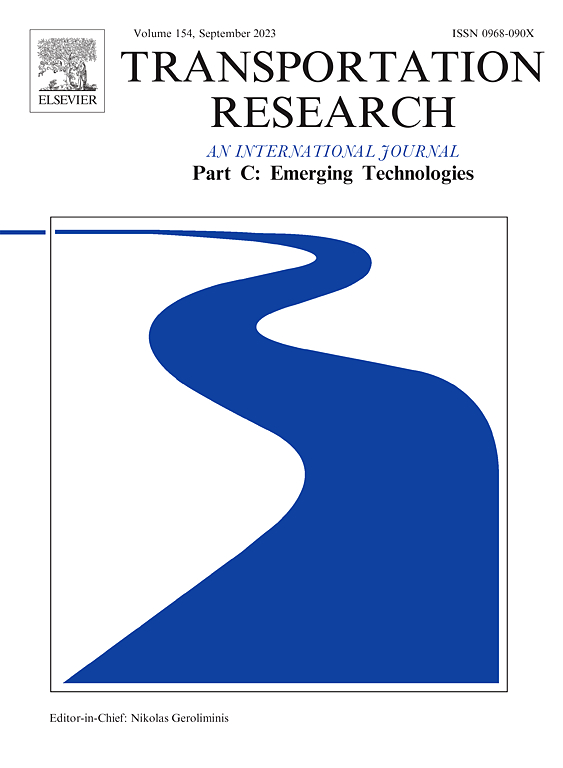Decision making for autonomous vehicles: A mixed curriculum reinforcement learning approach and a novel safety intervention method
IF 7.6
1区 工程技术
Q1 TRANSPORTATION SCIENCE & TECHNOLOGY
Transportation Research Part C-Emerging Technologies
Pub Date : 2025-10-10
DOI:10.1016/j.trc.2025.105369
引用次数: 0
Abstract
Reinforcement learning is considered one of the most promising approaches for decision-making in autonomous vehicles within interactive scenarios. However, its implementation faces challenges of insufficient safety and limited learning efficiency due to the stochastic nature of exploration and the complexity of the exploration space. In this paper, a mixed curriculum learning (MCL) approach, incorporating an intervention method called discrepancy-directed Bernoulli intervention (DDBI), is proposed to address these challenges in reinforcement learning. Firstly, the algorithm divides the training process into a safety phase and a performance phase. The agent focuses on accomplishing the safety task first, which is followed by the performance task. Secondly, DDBI introduces an additional safety agent to intervene in hazardous situations using a novel probability-based method, thereby enhancing the safety of the training process while preserving the exploratory nature of reinforcement learning. Finally, the proposed approach is evaluated in a lane change scenario with random traffic flow. Comprehensive comparative experiments with other algorithms demonstrate that the proposed approach outperforms in both safety and learning efficiency.
自动驾驶汽车决策:一种混合课程强化学习方法和一种新的安全干预方法
强化学习被认为是交互式场景下自动驾驶汽车最有前途的决策方法之一。然而,由于探索的随机性和探索空间的复杂性,其实施面临着安全性不足和学习效率有限的挑战。本文提出了一种混合课程学习(MCL)方法,结合了一种称为差异导向伯努利干预(DDBI)的干预方法,以解决强化学习中的这些挑战。该算法首先将训练过程分为安全阶段和性能阶段。agent首先专注于完成安全任务,其次才是性能任务。其次,DDBI引入了一个额外的安全代理,使用一种新的基于概率的方法来干预危险情况,从而提高了训练过程的安全性,同时保留了强化学习的探索性。最后,在随机交通流变道场景下对该方法进行了评价。与其他算法的综合对比实验表明,该方法在安全性和学习效率方面都优于其他算法。
本文章由计算机程序翻译,如有差异,请以英文原文为准。
求助全文
约1分钟内获得全文
求助全文
来源期刊
CiteScore
15.80
自引率
12.00%
发文量
332
审稿时长
64 days
期刊介绍:
Transportation Research: Part C (TR_C) is dedicated to showcasing high-quality, scholarly research that delves into the development, applications, and implications of transportation systems and emerging technologies. Our focus lies not solely on individual technologies, but rather on their broader implications for the planning, design, operation, control, maintenance, and rehabilitation of transportation systems, services, and components. In essence, the intellectual core of the journal revolves around the transportation aspect rather than the technology itself. We actively encourage the integration of quantitative methods from diverse fields such as operations research, control systems, complex networks, computer science, and artificial intelligence. Join us in exploring the intersection of transportation systems and emerging technologies to drive innovation and progress in the field.

 求助内容:
求助内容: 应助结果提醒方式:
应助结果提醒方式:


